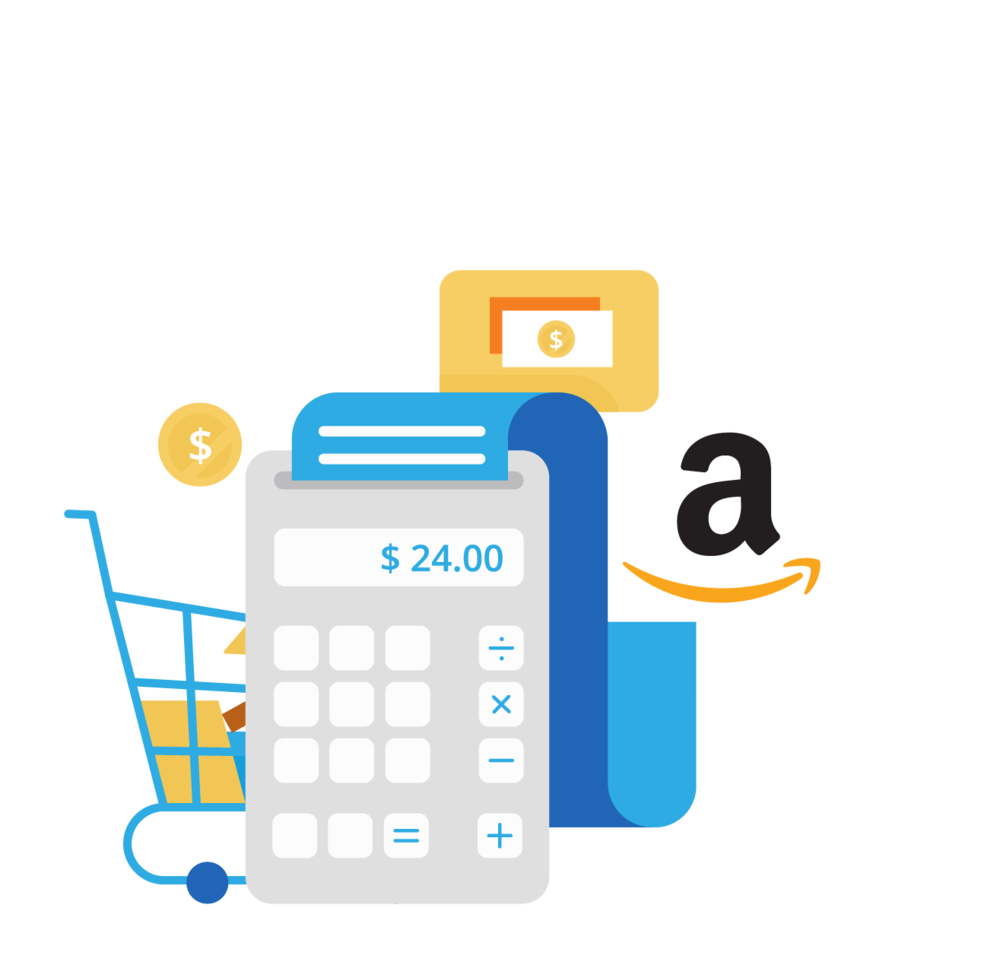Ecommerce Accounting Fundamentals

If you sell online on platforms such as Amazon, Shopify, Etsy, Walmart, or other channels, managing your accounting and bookkeeping can seem daunting.
This guide is here to answer seven common questions about ecommerce accounting to help you understand the fundamentals so you can set yourself up for long-term success.
Watch our video for a crash course in ecommerce accounting basics!
Table of Contents
Subscribe to the A2X Newsletter
Subscribe to the A2X Newsletter for expert ecommerce accounting advice and practical resources delivered straight to your inbox.
Subscribe now
1. How is ecommerce accounting and bookkeeping different from accounting and bookkeeping for a brick-and-mortar store?
Ecommerce accounting differs from brick-and-mortar accounting primarily in managing online-specific complexities such as multiple sales channels, global transactions, and sales tax compliance across jurisdictions.
Brick-and-mortar accounting, on the other hand, focuses on in-store sales, localized taxes, and physical inventory.
While the core tasks are similar for both ecommerce and brick-and-mortar stores, some of the additional considerations that add complexity to ecommerce accounting include:
- Aggregated transactions: Sales platforms often combine multiple transactions (sales, fees, refunds) into a single payout.
- Timing differences: Payouts for sales may arrive days or weeks after the sale, complicating cash flow tracking.
- Tax compliance: Managing sales tax, VAT, or GST across various jurisdictions.
- Currency conversion: For businesses selling internationally.
- Inventory management: Tracking stock levels for online sales.
- Payment processing fees: Accounting for platform charges.
- Multi-channel sales: Reconciling data from different sales platforms.
Although it’s more complex, having the right expertise or tools can make accounting for an online store manageable and accurate.
2. How do I record sales from my online store in my accounting software?
The easiest and most accurate way to record online store sales is to integrate sales channels (Amazon, Shopify, etc.) with accounting software. Connecting your sales channels to your accounting software means you can automatically import transaction data, categorize transactions to the appropriate accounts, and reconcile.
Why is this the easiest and most accurate method?
When you sell on platforms like Amazon, Shopify, Etsy, or Walmart, you’ll receive payouts in your bank account. However, these deposits aren’t just sales revenue. They also include:
- Fees
- Refunds
- Taxes
- Other adjustments
- …and more transactions!
To accurately record these transactions, you need to:
- Understand the components of each payout, including fees, refunds, and taxes.
- Post transactions to the appropriate account – for example, post sales to an ‘Income’ account, post fees to an ‘Expense’ account, etc.
Doing this manually (e.g., by looking at your seller statements and entering each transaction into your accounting software) can take a lot of time and is prone to error.
Tools like A2X simplify this process by automatically breaking down lump-sum payouts into detailed transactions and mapping them to the appropriate accounts in your accounting software. This ensures accurate records and saves time.
3. What method of accounting is best for ecommerce: cash or accrual?
The accrual method is typically best for ecommerce businesses as it records revenue and expenses when they are earned or incurred, providing a more accurate financial picture. The cash method, which records transactions only when money changes hands, may suit smaller businesses with simpler operations or cash-based models.
Let’s break this down further.
With the cash accounting method, an Amazon seller would record income only when Amazon deposits the funds into their bank account.
With the accrual accounting method, an Amazon seller would record a sale as soon as a customer places an order on their Amazon store, even if Amazon hasn’t yet released the funds or if the payment is pending due to the return policy.
For ecommerce businesses, accrual accounting is preferred because it:
- Provides a more accurate financial picture.
- Helps manage complexities such as lump-sum payouts and inventory costs.
- Is favored by investors and lenders for evaluating profitability and sustainability.
4. How should I handle sales tax or VAT for my ecommerce business?
Disclaimer: A2X doesn’t provide tax or VAT advice. We encourage you to find a sales tax/VAT expert who can provide you with advice based on your store’s unique obligations.
Managing sales tax, VAT, and similar compliance needs can be challenging due to varying regulations across regions – and tax/VAT responsibilities will vary from business to business because every business operates differently.
Key considerations include:
- Regional variations: Different states and countries have unique tax rates and thresholds.
- Platform-specific rules: Some platforms, like Amazon, may handle tax collection in certain regions and for certain transactions, while others, like Shopify, require the seller to manage it.
- Compliance: Ensure you accurately track obligations, calculate taxes, and file reports regularly.
Again, consulting with a tax expert is highly recommended to navigate these complexities.
Here are some sales tax/VAT guides that provide general information and can help you get started:
5. What accounting software is best for ecommerce businesses?
Finding the best accounting software for your ecommerce business will ultimately depend on your unique business needs.
Popular accounting software options for ecommerce sellers include:
- QuickBooks Online: Ideal for businesses with robust accounting needs.
- Xero: User-friendly with strong ecommerce integrations.
- Sage: Offers automation and seamless integrations.
Regardless of the software, it’s a good idea to connect your sales channels to your accounting system. Tools like A2X integrate with platforms such as Amazon, Shopify, eBay, Etsy, and Walmart to automatically categorize transactions and ensure accurate reconciliation.
Learn more about accounting software for ecommerce:
- Best accounting software for Amazon
- Best accounting software for Shopify
- Best accounting software for eBay
6. What financial reports are essential for an ecommerce business?
Essential financial reports for an ecommerce business include the Profit and Loss Statement, Balance Sheet, and Cash Flow Statement. These reports track revenue, expenses, assets, liabilities, and cash movement. Sales reports, inventory valuation, and tax summaries are also crucial for operational and compliance insights.
The Profit and Loss Statement, Balance Sheet, and Cash Flow Statement are important for every type of business to review – but let’s take a look at some examples of how they can help ecommerce business owners, specifically.
- Profit and Loss Statement: Shows revenue, expenses, and profit over a specific period, providing insights into financial performance and trends.
Example: An Amazon seller could use this report to evaluate overall business profitability, track major expenses, and identify trends in revenue and net profit.
- Balance Sheet: Provides a snapshot of assets, liabilities, and equity, offering insight into the financial health and stability of the business.
Example: An ecommerce business reviews its balance sheet to ensure inventory levels and credit card liabilities are properly balanced.
- Cash Flow Statement: Tracks cash inflow and outflow for liquidity management, ensuring the business can cover operational costs and invest in growth.
Example: A Shopify store owner monitors this report to ensure they have enough cash to pay suppliers during seasonal demand surges.
Additionally, ecommerce businesses often track:
- Product-specific sales data
- ROAS (Return on Ad Spend)
- Contribution margin (revenue after variable costs, such as fulfillment and advertising)
- …and more!
These insights can help optimize operations and improve profitability.
7. Do I need an accountant for my ecommerce store?
Hiring an accountant for your ecommerce store is recommended, especially if you manage complex finances, handle multi-state/country taxes, or are looking to scale your business. Accountants assist with compliance, tax planning, and financial strategy, saving time and reducing errors. Smaller stores with simpler operations may use accounting software but will benefit from occasional professional advice.
Having an accountant or bookkeeper can make a significant difference, especially if they specialize in ecommerce. They can:
- Handle complex tasks like lump-sum payouts, tax compliance, and inventory tracking
- Ensure accurate records and tax compliance
- Offer growth advice tailored to online businesses
To find a trusted professional, visit the A2X Directory to connect with accountants and bookkeepers who specialize in working with ecommerce clients.
More questions about ecommerce accounting?
Ecommerce accounting is complicated! While we hope this guide has helped clarify some of the bigger questions, it’s only the tip of the iceberg – there’s so much to learn about accounting for online sales.
Whether you’re looking for an accountant or need help integrating sales data into your accounting software, the A2X team is here to assist you on your ecommerce accounting journey. If you have questions, reach out at contact@a2xaccounting.com.
Subscribe to the A2X Newsletter
Subscribe to the A2X Newsletter for expert ecommerce accounting advice and practical resources delivered straight to your inbox.
Subscribe now
-
How to Find an Ecommerce Accountant
Explore -
Ecommerce Accounting Guide for Business Owners [2025]
Explore -
Ecommerce Income Statement: What to Include & How to Get Insights
Explore -
Traditional Bookkeeping vs. Ecommerce Bookkeeping
Explore -
Ecommerce Balance Sheet: What to Include & How to Get Insights
Explore -
Cash Accounting vs. Accrual Accounting for Ecommerce
Explore -
Profit First for Ecommerce Sellers
Explore -
The Development Stages of Your Ecommerce Tech Stack
Explore -
Accrual Accounting for Ecommerce: The Basics
Explore -
Top 5 Best Ecommerce Accounting Software in 2025
Explore



